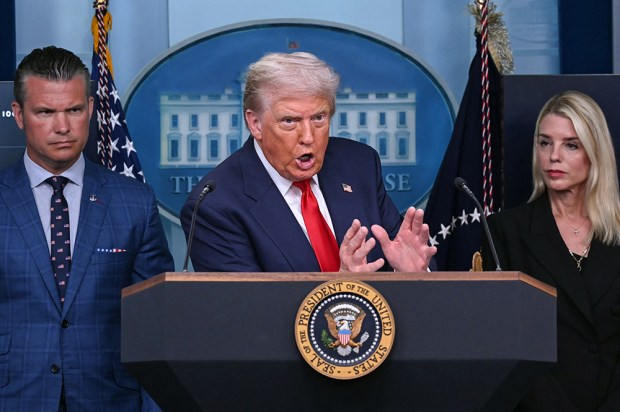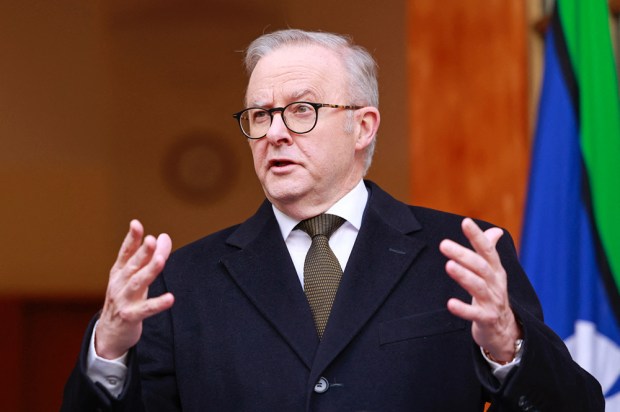Treasurer Jim Chalmers is selling August’s Economic Reform Roundtable, the rebadged ‘Productivity Summit’, as a bold, solutions-driven gathering to supercharge productivity, fortify resilience, and strengthen the budget. On the glossy brochure, it sounds like the birthplace of the next great economic renaissance. In reality it looks more like a Canberra coffee klatsch for the usual big-government bureaucrats, corporate welfare queens, union muscle and assorted gold-lapel-wearing policy groupies, all gathered to repackage higher taxes as ‘reform’. A more apt title for the summit would be Jim’s Jamboree.
We have seen this movie before. Kevin Rudd’s 2020 summit in 2008. Wayne Swan’s Tax Forum in 2011. Anthony Albanese’s Jobs and Skills summit in 2022. The cast changes, the set dressing changes, but the plot remains the same: photo ops, grand promises, more government, and economic wreckage.
At the more recent Jobs and Skills summit, unions used the stage to hardwire more regulation into the labour market, rules guaranteed to chip away at national competitiveness and quietly euthanise private sector jobs. The coming Jamboree, née Roundtable, promises yet another exercise in centrally planned economic vandalism, complete with a three-day program that is less a blueprint for reform than a red flag parade.
Day One carries the theme of ‘resilience’, which in today’s increasingly centrally planned economy, could mean anything from spraying subsidies over politically blessed industries to shovelling grants into the pockets of lobbyist-friendly sectors. Day Two offers ‘productivity’, but in the Canberra dictionary that translates into ‘better regulation’, which means more red tape, more bureaucrats, and bigger taxpayer-funded prizes for the best-connected rent-seekers. And Day Three, the pièce de resistance, is ‘budget sustainability and tax reform’, headlined by the Secretary of the Treasury and the CEO of the Grattan Institute, two champions of the high-tax, high-spend orthodoxy who treat spending restraint as dangerous fringe theory.
What is not on the agenda is just as revealing as what is.
Missing entirely is any serious discussion of reducing government spending, perhaps starting with the NDIS, a program now costing over $50 billion a year and growing at over eight per cent per annum – four times the pace of the economy. Left unchecked, it will swallow the Commonwealth budget whole.
Australia’s is not just a bloated budget; it is a structural sinkhole. Every extra dollar funnelled into runaway programs like the NDIS is a dollar stripped from capital equipment, technology or business expansion, the actual engines of productivity. Instead of confronting this ballooning universal entitlement, the government is busy designing another universal entitlement in universal childcare. Because nothing says ‘boost productivity’ like permanently cranking up the tax-to-GDP ratio to feed a non-means-tested dependency state.
Chalmers likes to declare that ‘everything is on the table’. The fine print, however, reveals that any proposal must be ‘budget neutral or better’, which sounds prudent until you realise it is code for ‘spending is sacrosanct, so find us more tax’. The ‘budget sustainability’ session risks being a bean counter’s parlour game designed to normalise today’s spending binge as the sacred baseline.
Australia’s productivity slump is no mystery. It is the inevitable result of capital shallowing, collapsing private investment, a half-baked innovation ecosystem and a jungle of regulation. The Productivity Commission’s own figures show that the non-market sector, government-funded health, education, and welfare, now dominates job creation. Fully 80 per cent of recent jobs have come from sectors where output is politically directed, not market disciplined.
The truth is stark; you cannot sustainably lift productivity by expanding the state’s footprint. Government ‘production’ is insulated from competition and allergic to efficiency. The only proven path to lasting productivity gains runs through smaller government, deregulation and freer markets.
It is funny, however, how commentators insist that slowing productivity is a ‘global phenomenon’. It is not. It is a European phenomenon. Europe has simply chosen to commit economic seppuku by taxing and regulating itself to poverty. There is no productivity crisis in Asia or the United States. Australia just seems hell-bent on following the European-built road to Buenos Aires.
When it comes to actual productivity reform, Australia does not suffer from a shortage of ideas; it suffers from a shortage of political courage. Hawke and Keating’s reforms of the 1980s – floating the dollar, cutting tariffs, deregulating finance – proved that vested interests can be beaten when the will exists. Howard and Costello’s GST was paired with income-tax cuts and spending discipline, not as a grudging concession but as part of a deliberate, growth-minded bargain with the public. By contrast, Chalmers’ Roundtable risks becoming a government-curated echo chamber in which the ‘reform’ is code for devising ever more creative ways to fleece the productive economy.
Milton Friedman diagnosed the disease decades ago: ‘We have a system that increasingly taxes work and subsidises non-work, and then we wonder why we have an unemployment problem.’ Swap ‘unemployment’ for ‘stagnant productivity’ and you have Australia’s current malaise in one line.
What this country needs is not another talkfest stacked with bureaucratic lifers, big business grifters and policy think-tankers whose business model depends on bigger government. It needs a genuine reform summit prepared to bulldoze the red-tape barricades, revive private investment, simplify, cut, and flatten taxes, end corporate welfare and impose spending discipline on runaway programs before they hollow out the fiscal base.
Jim’s Jamboree could, in theory, be the moment Australia chooses dynamism over drift, competition over corporatism, and growth over managed decline. But if history is any guide, it will be another set piece in the long-running Canberra soap opera: photo opportunities, glossy reports and not a shred of political will.
If Chalmers truly wants to make history, he can – by unshackling the productive economy instead of tightening the tax-and-spend loop. If he does not, this Roundtable will stand as proof that ‘budget sustainability’ is nothing more than a fig leaf for boiling the economy alive under the dead weight of ever-rising spending and ever-heavier taxes. The choice belongs to the Treasurer. The bill will be ours.
Got something to add? Join the discussion and comment below.
Dimitri Burshtein is a principal at Eminence Advisory. Peter Swan AO is professor of finance at the UNSW-Sydney Business School.
You might disagree with half of it, but you’ll enjoy reading all of it. Try your first month for free, then just $2 a week for the remainder of your first year.













